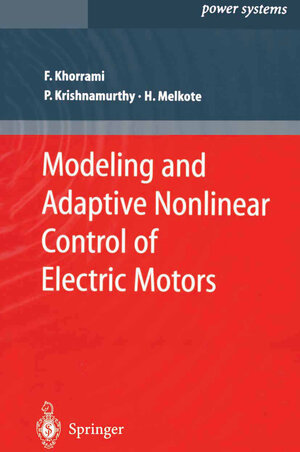
ME MAGAZINE
„The focus here is on recent advances in feedback control designs for various types of electric motors, with a slight emphasis on stepper motors. For this purpose, the authors explore modeling of these devices to the extent needed to provide a high-performance controller, but at the same time amenable to model-based nonlinear designs. The control designs concentrate mainly on recent robust adaptive nonlinear controllers to attain high performance. It seeks to show that the adaptive robust nonlinear controller on its own archives a reasonably good performance without requiring exact knowledge of motor parameters.“
Modeling and Adaptive Nonlinear Control of Electric Motors
von Farshad Khorrami, Prashanth Krishnamurthy und Hemant MelkoteIn this book, modeling and control design of electric motors, namely step motors, brushless DC motors and induction motors, are considered. The book focuses on recent advances on feedback control designs for various types of electric motors, with a slight emphasis on stepper motors. For this purpose, the authors explore modeling of these devices to the extent needed to provide a high-performance controller, but at the same time one amenable to model-based nonlinear designs. The control designs focus primarily on recent robust adaptive nonlinear controllers to attain high performance. It is shown that the adaptive robust nonlinear controller on its own achieves reasonably good performance without requiring the exact knowledge of motor parameters. While carefully tuned classical controllers often achieve required performance in many applications, it is hoped that the advocated robust and adaptive designs will lead to standard universal controllers with minimal need for fine tuning of control parameters.



